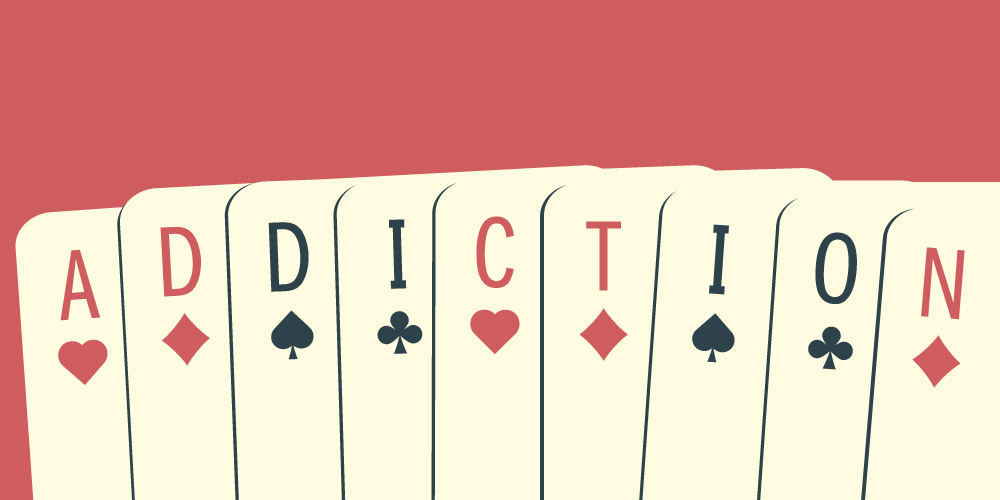Spice Addiction & Abuse
Sometimes known as “fake weed” or ‘Synthetic marijuana” Spice (K2) is a synthetic Cannabinoid. Originally designed to induce similar effects as the active ingredient in cannabis, tetrahydrocannabinol (THC), they have proven to have a stronger potency and produce different effects to natural cannabis. Often these effects can be unpleasant and very unpredictable. (Synthetic cannabinoids (Spice))
If you have been using Spice to get stoned and are concerned about how your need is evolving, or maybe someone you know has been experimenting or using Spice to enhance their high, please reach out so that we can assist you in finding treatment for yourself or your loved one.
Street names: Amsterdam Gold, Annihilation, Black Mamba, Blue Cheese, Bombay Blue, Extreme, Clockwork Orange, Devil’s Weed, Ecsess, Exodus Damnation, Mary Joy, Spice, Tai High Hawaiian Haze or X (Synthetic cannabinoids | Effects and Risks)
What is Spice Addiction?
Spice addiction is a compulsive need for and continued use of Spice, and despite any negative consequences to your health, family relationships, and finances you may have been unable to stop using Spice despite trying. Accepted as a mental health illness in the DSM-5 (Diagnostic and Statistical Manual of Mental Disorders (DSM-5)), addiction to any substance is a chronic disease that leads to uncontrollable cravings.
Sadly, Spice addiction has become widespread, and if you are suffering from signs of abuse or addiction, you are not alone. There are treatment programs that can help you overcome the negative effects of using Spice and help you develop better coping mechanisms

Spice Addiction VS. Abuse
Although there are differences between abuse and addiction, Spice addiction or abuse is determined on the pathological pattern related to its use:
- Impaired Control – this impaired control over how much Spice you need as your tolerance increases, can develop after just a few doses of Spice
- Social or interpersonal impairment – Prolonged use of psychoactive Spice may have prevented you from maintaining family responsibilities and work or school performance.
- Risky use – you may have continued driving whilst high, or if your job entailed operating heavy machinery, you may have thought you were capable of safely operating the machines as normal
- Withdrawal symptoms are experienced when you haven’t been able to use Spice.
What Makes Spice Addictive?
Marketed as a “safe” alternative to cannabis, synthetic cannabinoids act on the same brain cell receptors as THC and can produce similar feelings of :
- Elevated Mood
- Relaxation
- Euphoria
- Heightened awareness/
(K2/Spice: What to Know About These Dangerous Drugs Drugs like K2 and Spice have been)
Spice is often more potent than marijuana and produces a more intense high.
Enter your phone number below and one of our qualified addiction specialists will get in touch to discuss your options.
How Spice Addiction Develops
The development of a Spice addiction is when the urge to use Spice supersedes the negatives caused. Addiction is not a choice and there are risk factors that have made you unable to avoid developing a substance use disorder.

A Family History of Drug Use
Parental history of substance use disorder may have a genetic impact on your inclination to abuse Spice, lowering your decision-making qualities, increasing your mental health issues as well as increasing compulsivity and risk-taking behaviours. (Family History of Substance Use Disorders: Significance for Mental Health in Young Adults who Gamble?)
Spice has the potential to develop, or cause a relapse of mental illness, especially if there is a family history of mental disorders. (What is Spice and why is the drug so dangerous?)
Repeat Exposure
Continued use of Spice impacts the area of your brain responsible for emotions and decision making. As Spice hijacks the reward centres of your brain you start to need Spice to feel ‘normal’
Trauma & Pre-existing Mental Health Conditions
Trauma, especially if encountered during childhood has been linked to substance use disorders (Substance use, childhood traumatic experience, and Posttraumatic Stress Disorder in an urban civilian population) PTSD experienced in adulthood also strongly correlates to high instances of substance use. An early traumatic experience may increase your risk of SUDs because you have been attempting to self-medicate or dampen mood symptoms.
Often these traumas have left you susceptible to developing other mental health issues although it should be noted that not all people that have mental health issues suffered trauma in childhood and are also just as likely to develop a substance use disorder.
Signs & Symptoms of Spice Addiction
Due to its unpredictable effects, Spice addiction can include both physical and cognitive symptoms:
- Physical –
- Excessive sweating.
- Agitation.
- Hallucinations.
- Nausea.
- Vomiting.
- Slurred speech.
- Shakiness.
- Greatly increased hunger or thirst.
- Mental or Cognitive – there may be a disproportional level of activity in your central nervous system caused by the use of Spice
- Increased anxiety.
- Agitation.
- Delusions.
- Disordered thinking.
- Paranoia.
(Spice Abuse Symptoms, Signs, and Addiction Treatment|Drugabuse.com)

Diagnosing Spice Addiction
The NHS recommends that the DAST-10 (Drug Abuse Screening Test) assessment (Policy for alcohol referral pathway/clarify services between CAT & DAS services) and CAGE questionnaire (CAGE Questionnaire: Questions, Scoring, Variations, and Accuracy) be used by your medical provider or chosen treatment centre.
You will be asked the following questions:
- What substance(s) are you using? Including other drugs or medications
- In what quantities?
- How frequently?
- By what route (smoking, injecting, swallowing)?
- How long have you been using for?
- Do you recognise this use as problematic?
The Dangers of Spice Addiction
Unfortunately, since Spice is not manufactured the same between different labs and even batches there is no way to control the dose you receive, opening you up to having unpleasant effects such as:
- extreme anxiety
- confusion
- paranoia—extreme and unreasonable distrust of others
- hallucinations—sensations and images that seem real though they are not
- rapid heart rate
- vomiting
- violent behaviour
- suicidal thoughts
(https://www.drugabuse.gov/publications/drugfacts/synthetic-cannabinoids-k2Spice0)
Since Spice or K2 is a relatively new psychoactive substance (NPS), there have not been enough studies to determine long-term health effects outside of what has been observed by doctors but the risk of psychotic episodes is high with continued use. (What is Spice and why is the drug so dangerous?)

Spice Use in Teens
Spice use in teens has grown, in 2020 the growth was almost double the percentage of teens using Spice in 2017-2019 (Stats & Trends in Teen Drug Use with Interactive Chart | NIDA for Teens) especially as a vaping mix.
The negative impact on brain growth (Drugs and the Teen Brain | NIDA for Teens), mental health, and socio-economic outcomes for teens that are experimenting with any substance, let alone one as unpredictable as Spice is concerning.
Teens are particularly vulnerable to psychosis because of the over-activation of the cannabinoid system in their developing brains. (https://www.mentalhelp.net/substance-abuse/Spice/)
If you suspect that your teen or a teen you know is using Spice especially habitually, please contact us, rehabilitation treatment that is started sooner rather than later has a better chance of long-term recovery.
Spice Use and Employment
With the unpredictability of Spice effects, your employment may be jeopardised, using a substance like Spice during working hours is also going to increase the risk of injury to yourself or co-workers.
Spice is also classified as illegal and you could lose your job if found to be using this or any other illegal drug.
Mixing Spice with Other Drugs
Mixing synthetic cannabinoids like Spice with alcohol or drugs can lead to increased risks. As Spice may also overstimulate your serotonin system, taking antidepressants and using Spice can cause Serotonin Syndrome (Serotonin Syndrome: Symptoms, Causes, Diagnosis, Treatment.) – high fever, rapid pulse, sweating, agitation, confusion, convulsions, organ failure, coma
Spice Use in Pregnancy
Smoking or using Spice while pregnant can cause damage to a developing embryo’s brain:
- Attention deficit hyperactivity disorder (ADHD)
- Learning disabilities
- Memory problems in toddlers and 10-year-olds
- Aggression, anxiety, and depression in teens
(Marijuana and Spice May Cause Damage in Early Pregnancy)
There has also been a connection found between high potency drugs such as Spice and a condition called anencephaly (Marijuana, Spice ‘herbal high’, and early neural development: implications for rescheduling and legalization), where a baby is born with large parts of their brain or skull unformed.
Getting Help for Spice Addiction
You may have been mixing Spice with other drugs such as cannabis (poly-drug use) and receiving treatment for both addictions concurrently is possible, additionally, co-occurring mental health issues can also be assessed and treated.
Whilst behavioural therapies and medications have not specifically been tested for treatment of addiction to Spice (Synthetic Cannabinoids (K2/Spice) DrugFacts), having a medically supervised treatment programme that includes therapy has been shown to produce better long-term recovery outcomes in addiction treatment.
If you are concerned that your body is becoming dependent on Spice please contact us for assistance in finding the best recovery programme for you.
